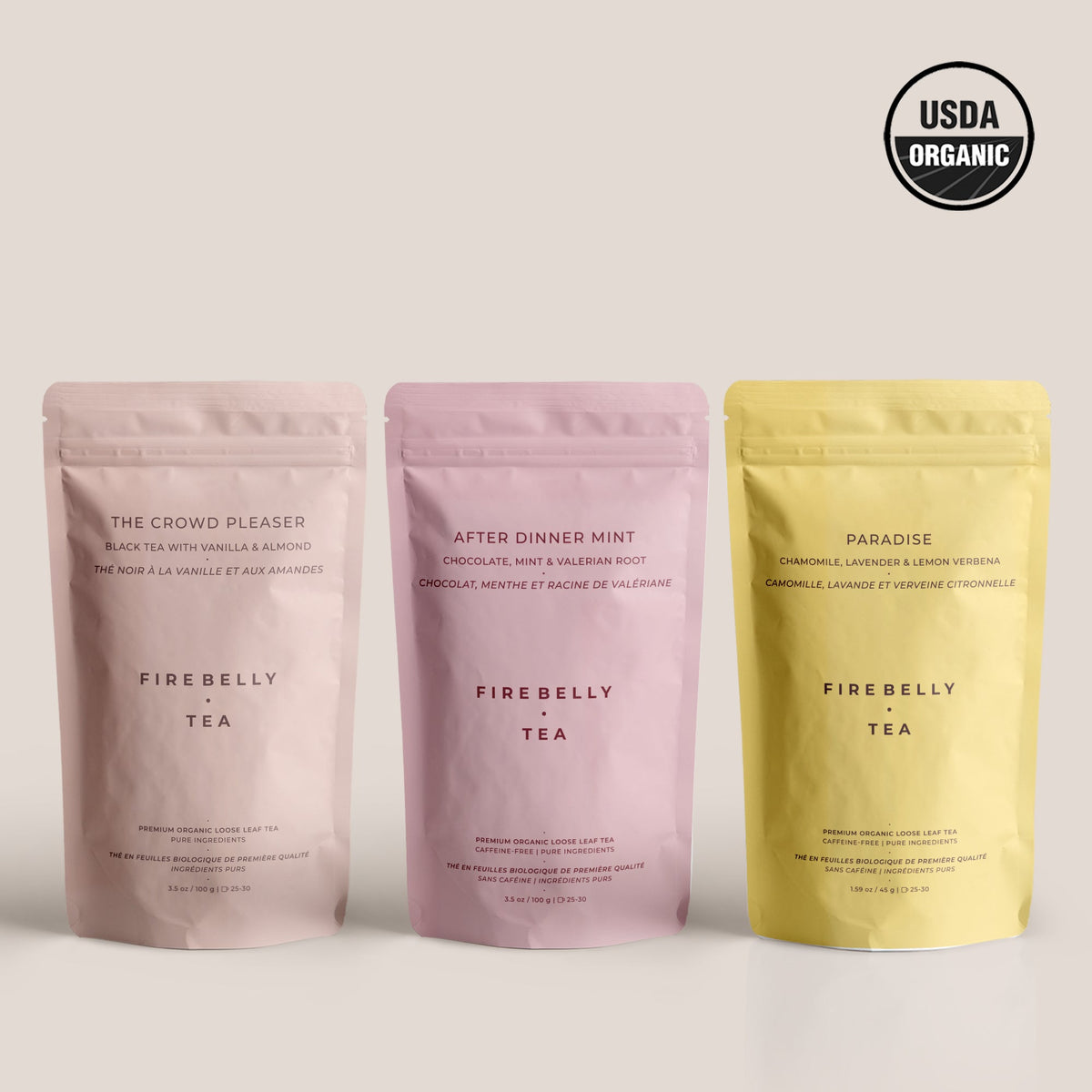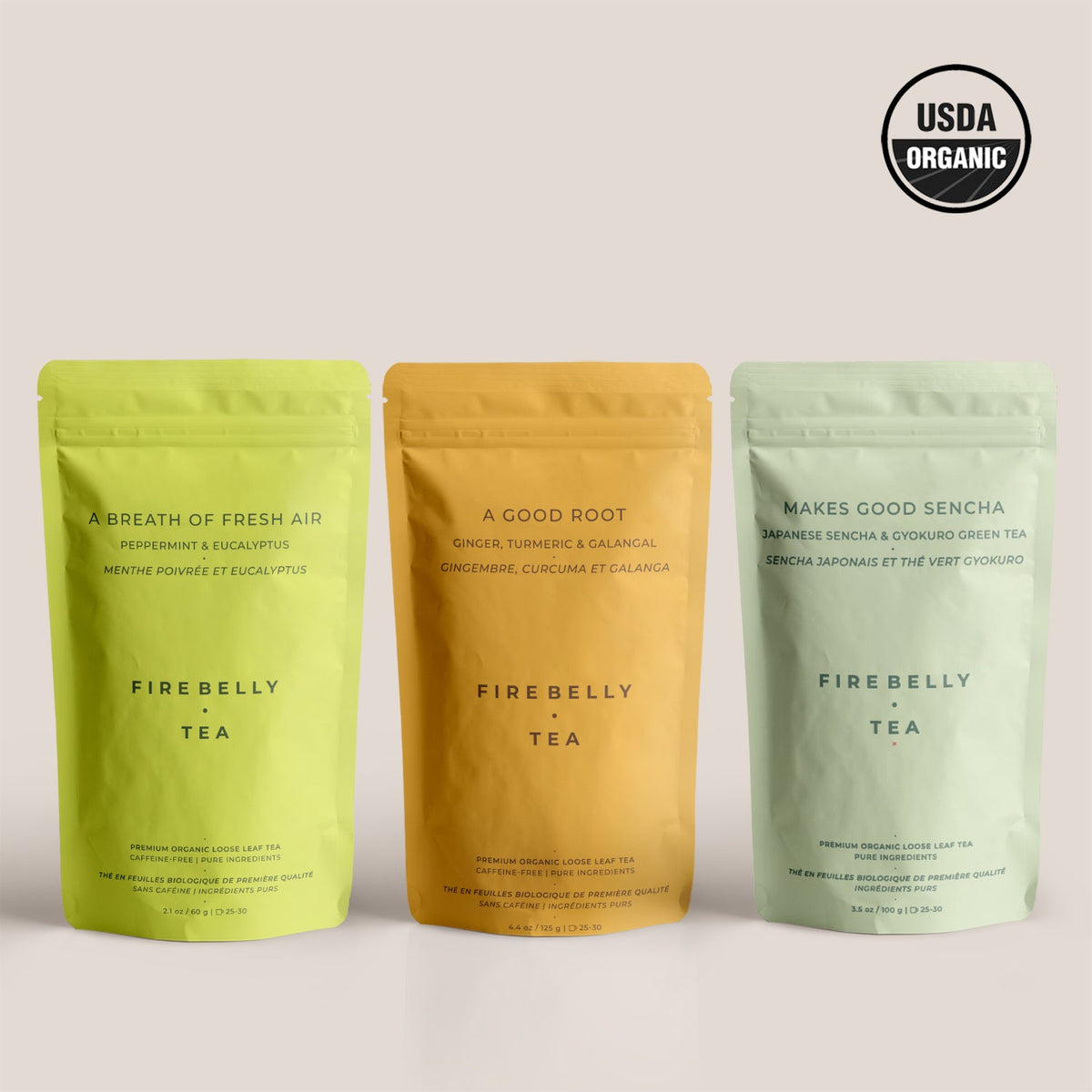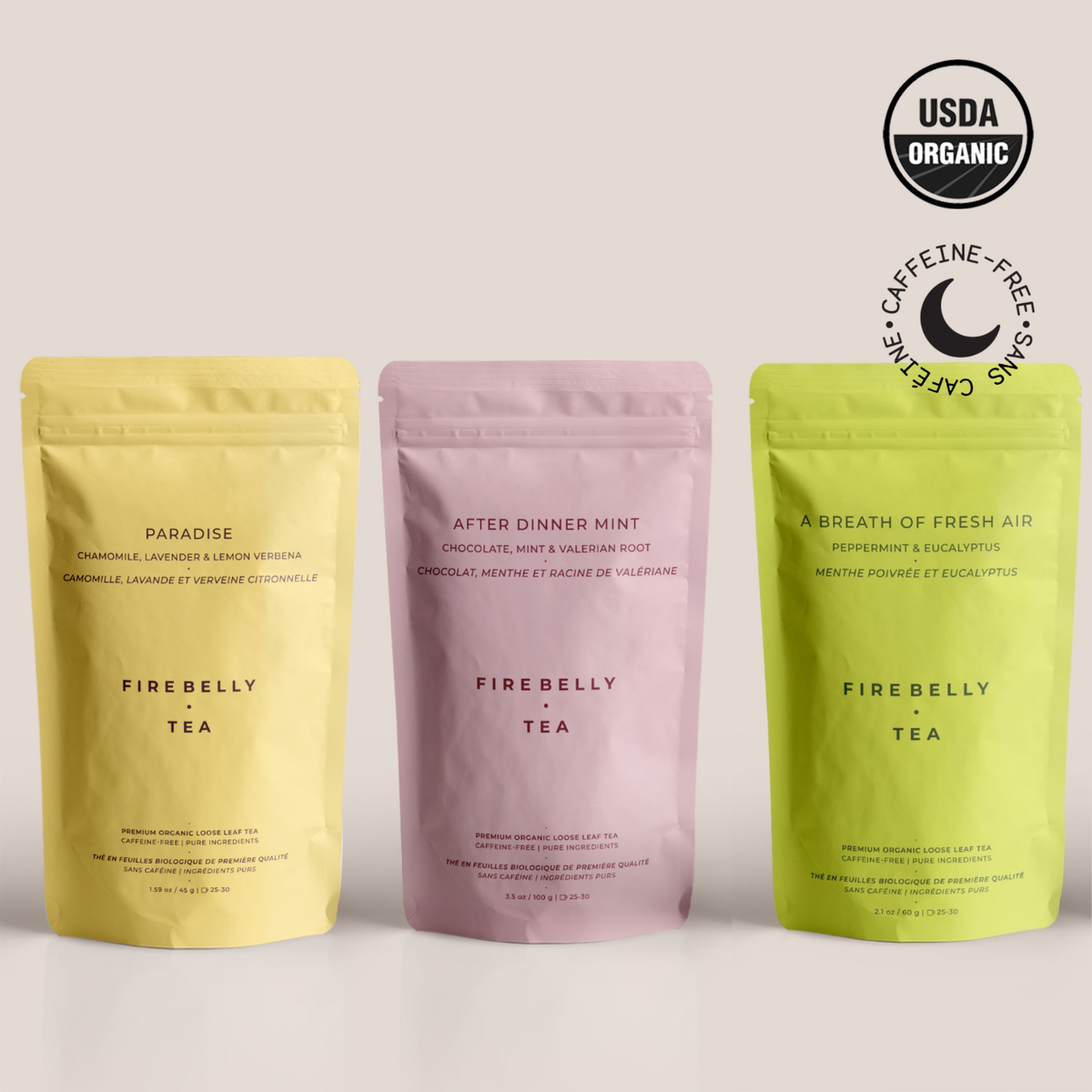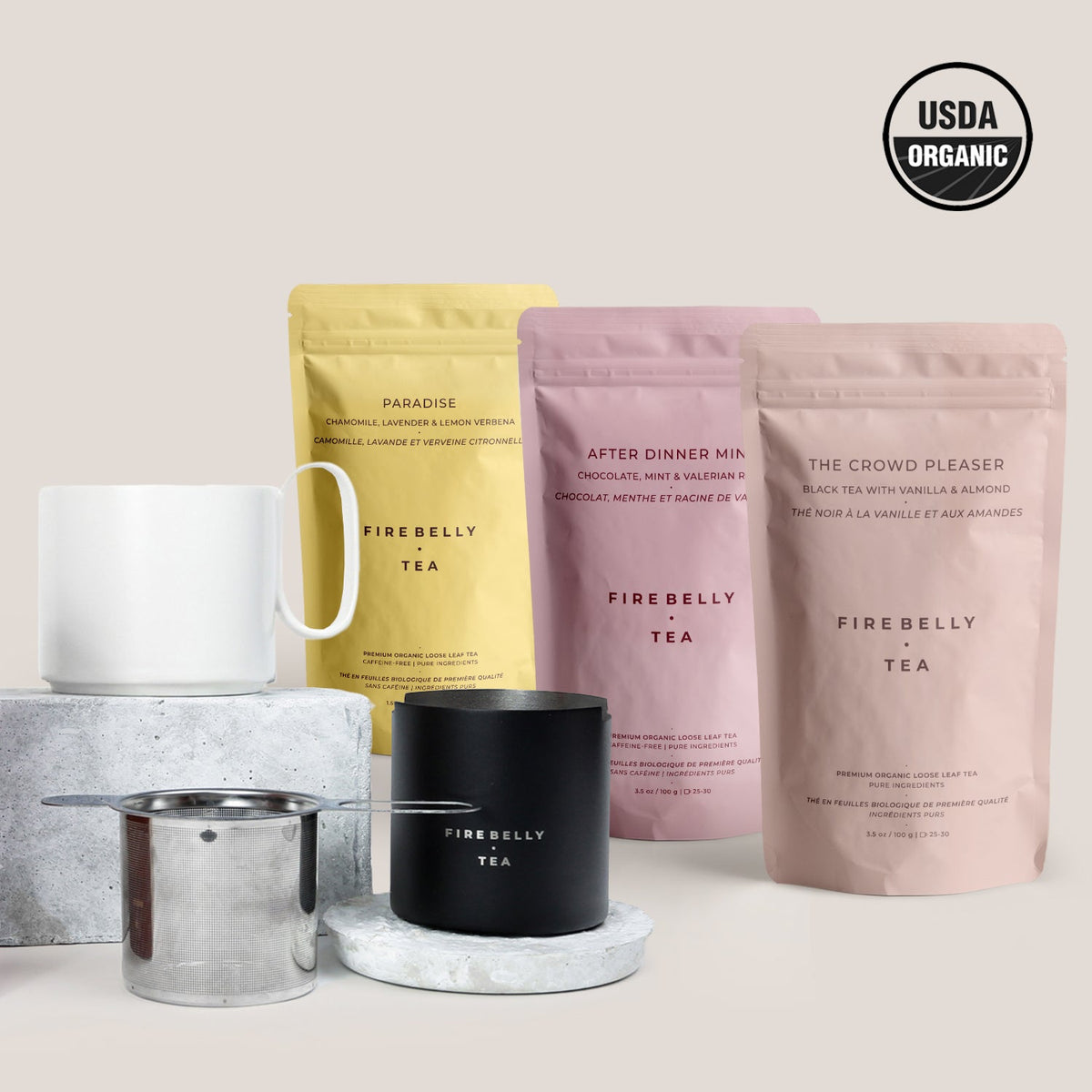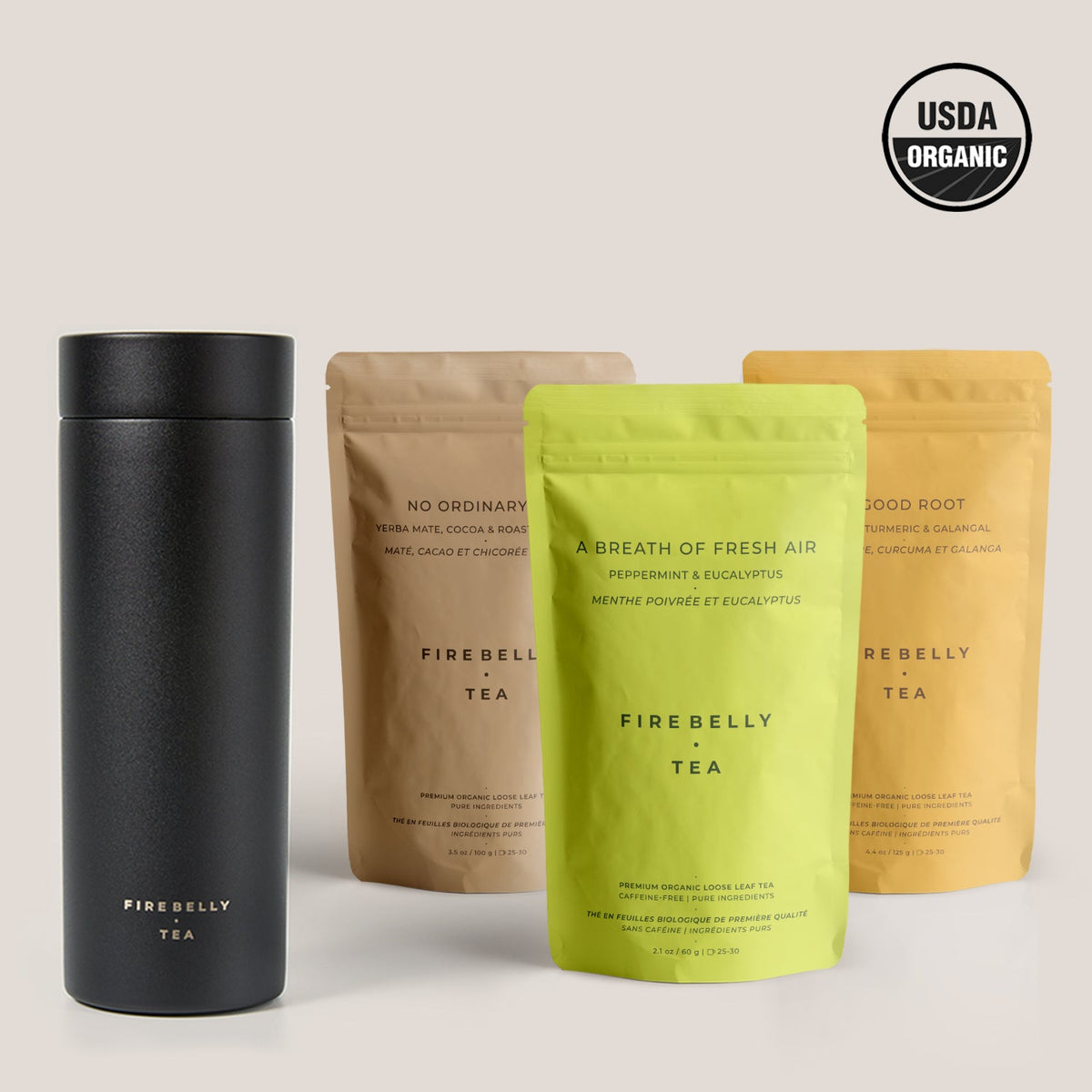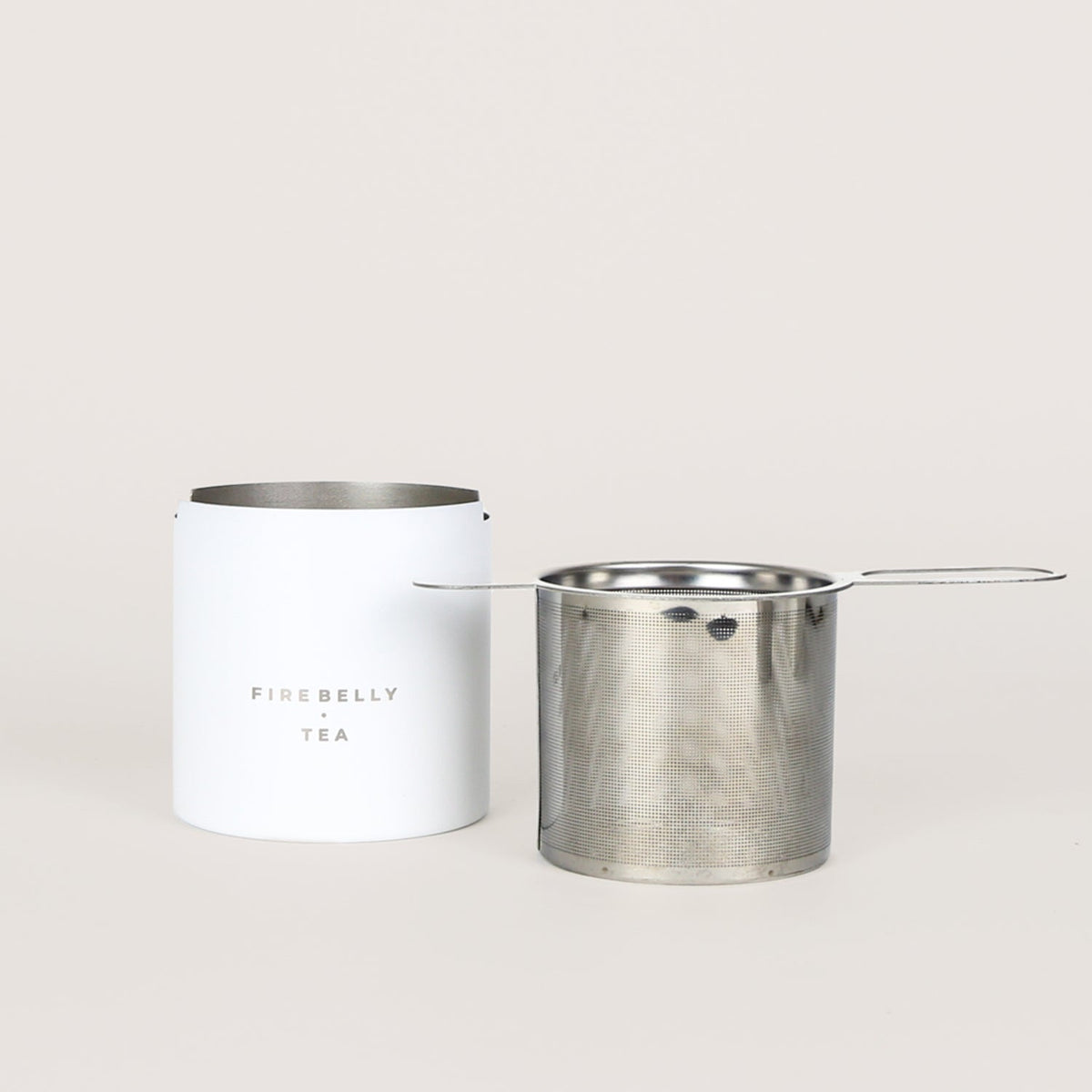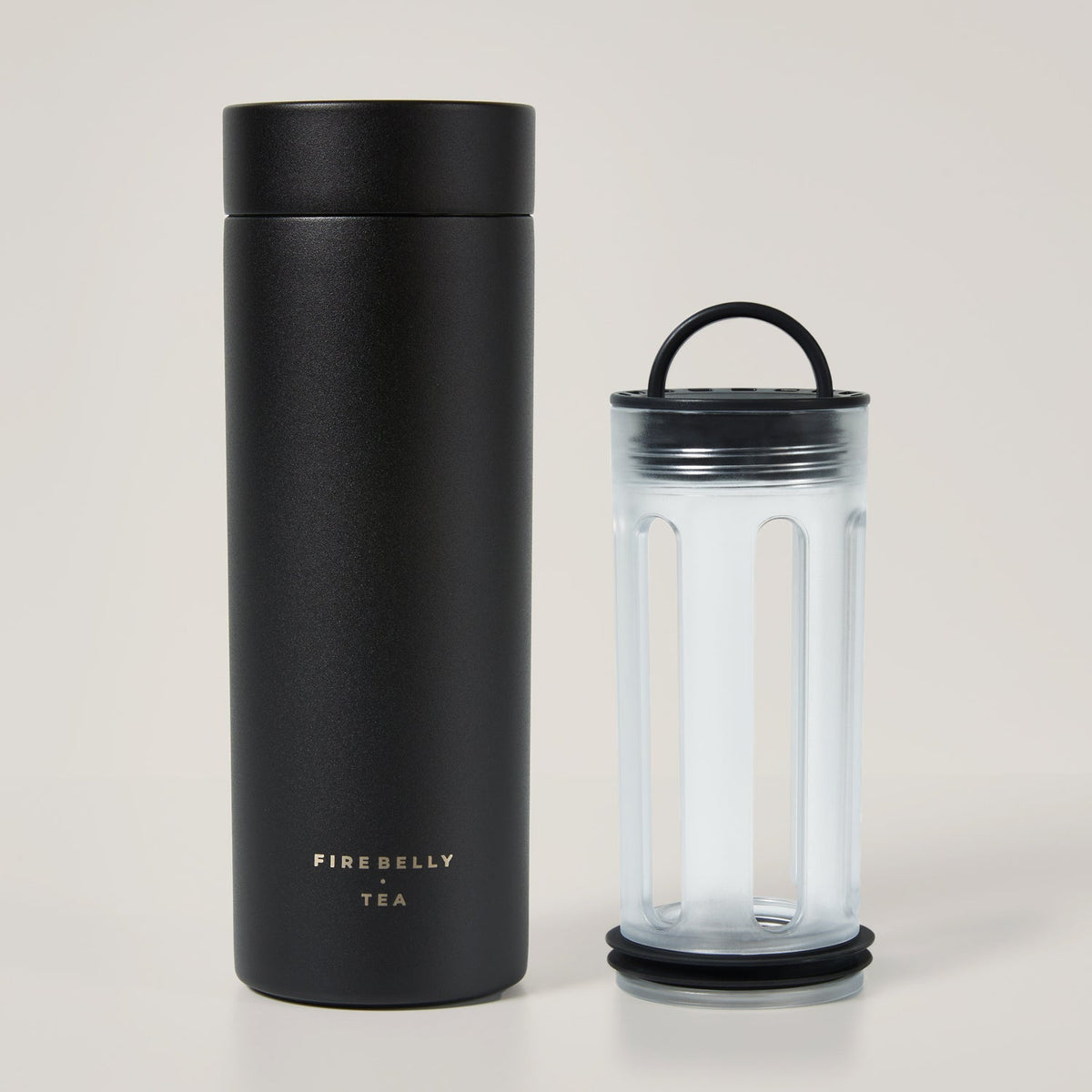Chamomile tea is a type of tea that is made from the dried flowers of chamomile plants. Chamomile tea has been used for centuries as herbal medicine to treat a variety of conditions, and it is still consumed today for its health benefits.
So what is chamomile tea good for?
In this post, we will discuss what chamomile tea is and its origins, the different types available, and its benefits.
We'll also answer some frequently asked questions about chamomile tea.
Let's get started!
What is Chamomile Tea?
Chamomile tea is a type of herbal tea that is made from the dried flowers of chamomile plants. Chamomile tea is naturally caffeine-free, and it has a sweet, slightly grassy flavor.
Chamomile flowers are daisy-like belonging to the Asteraceae family. Two species are commonly used to brew tea. These are the German chamomile (Matricaria chamomilla) and Roman chamomile (Chamaemelum nobile). Roman chamomile is sometimes referred to as English or garden chamomile.
Both species look similar and provide similar health benefits. However, the main difference is that Roman chamomile is a perennial plant whereas the German chamomile is an annual plant. Another difference is that Roman chamomile tends to be lighter and sweeter, and is the more popular chamomile species for making tea.
Chamomile tea has been used for centuries to treat a variety of conditions, and it is still consumed today for its health benefits.
Before we jump into the benefits, let's talk a bit about the origins of this amazing plant.
Origins of Chamomile
The word "chamomile" comes from the Greek word "khamaimēlon". Khamai means "on the ground" and mēlon means apple. So this could be roughly translated as "ground apple".
The chamomile plant is native to Europe and West Asia, but it now grows in many parts of the world. Chamomile plants have been used medicinally for centuries, and they were even mentioned in Ancient Egyptian texts (1).
Indeed this plant was highly valued by the Egyptians, Romans, and Greeks due to its medicinal benefits. They commonly used chamomile as a calming tisane (2) and several ancient scientists such as Hippocrates himself, the father of medicine, studied the plant around 500 BCE (3).
So chamomile tea is a beverage that has been with us for thousands of years, due to its medicinal benefits, and it's only over the past few decades that science has been able to confirm some of these benefits.
Trivia:
Did you know that in Slovakia there is a saying that one must bow to the chamomile plant if one comes across it? (3,4)
What Does Chamomile Tea Taste Like?
Chamomile tea has a sweet, slightly grassy flavor. It is naturally caffeine-free, so it is a good choice for those who are looking to avoid caffeine. Chamomile tea can be enjoyed plain or with a bit of honey or lemon.
What Color Is Chamomile Tea?

Chamomile tea is usually golden in color. However, the color can vary depending on the type of chamomile used and how long the tea is steeped.
Chamomile Tea Benefits on Human Health
Now that we know what chamomile tea is, let's dive deep into its benefits.
We'll focus here on the benefits of chamomile tea.
But just so you're aware, there are chamomile extracts, tinctures, oils, ointments, soaps & shampoos, creams, and lotions that have the same or different benefits.
Chamomile Tea May Promote Good Sleep
Chamomile contains apigenin, an antioxidant that binds to certain receptors in the brain. This flavonoid may promote sleepiness and help combat insomnia (5).
A Taiwanese study consisting of 80 postnatal women suffering from poor sleep showed that drinking chamomile tea for two weeks improved sleep quality (6).
Another study consisting of 34 patients taking a 270 mg chamomile extract twice per day for 28 days found that patients who took the extract fell asleep 15 minutes faster and had about one-third less sleep disturbances, compared to the placebo group (7).
In short, some studies show that chamomile tea is a calming tea and can help improve sleep quality. However, further studies are required to better quantify this tea's impact on sleep.
Chamomile Tea May Help Those with Diabetes
Various studies suggest that chamomile tea may help suppress blood sugar levels by increasing the liver's glycogen storage and by restraining the production of sorbitol (8).
In addition, chamomile has anti-inflammatory properties through the apigenin compound (9), which helps protect the pancreas. The pancreas is essential in sugar regulation as it produces insulin.
In layman's terms, drinking chamomile can help people who suffer from diabetes.
This is backed up by a study consisting of 64 individuals suffering from Type 2 diabetes. The group who consumed chamomile tea for 8 weeks had significantly lower blood sugar levels than the group who consumed water (10).
There are several studies on mice and rats, which show promising results, such as reduced progress of diabetic complications and reduced blood sugar spikes (11,12).
In short, chamomile tea may help regulate blood sugar levels and thereby help those who suffer from diabetes. However, further studies are required to fully understand how chamomile can help those who suffer from diabetes.
Chamomile Tea May Have Anti-cancer Properties
Chamomile tea contains several compounds that may help prevent cancer.
One of those is the apigenin antioxidant, which we covered above.
Test-tube studies have shown that apigenin can help fight breast, digestive tract, skin, prostate, and uterus cancer cells (13, 14).
There are only a few studies that specifically study the anti-cancer of chamomile tea due to the complexity of such studies. However, a Greek study of 537 people found that those consuming chamomile tea 2 to 6 times per week were much less likely to develop thyroid cancer (15).
In short, there are several studies suggesting that chamomile tea may have anti-cancer properties. However, more human studies are needed to strengthen these findings.
Chamomile Tea May Have Digestive Health Benefits
There is some evidence that chamomile tea may help with digestive issues.
A study of rats showed that chamomile decoction extract can help against diarrhea in rats (16).
Other studies on animals have found some evidence of gastro-protective effects of chamomile, such as protection from stomach ulcers by reducing acidity and restraining the growth of bacteria that contribute to ulcer development (17, 18).
In short, chamomile tea may have benefits for digestive health. However, more studies on humans are needed to better understand this benefit.
Chamomile Tea May Have Heart Health Benefits
Chamomile tea may also have some benefits for heart health.
Chamomile contains a class of antioxidants called flavones, which have been linked to lowering cholesterol and blood pressure levels (19).
Significantly, a clinical trial of 64 individuals aged from 30 to 60 years old noted that those who consumed chamomile tea had improvements in their cholesterol levels compared to the control group, who drank water.
In short, chamomile tea may help improve heart health. However, more studies are needed to better understand the benefits of chamomile tea on the heart.
Chamomile Tea May Have Even More Health Benefits
As we've noted, chamomile tea has been used since time immemorial for its medicinal benefits. Some of these health benefits are in addition to the five we talked about above.
However, there is still insufficient scientific evidence to confirm them. This does not mean they are untrue! Scientific research still needs to catch up when it comes to traditional plant-based medicine.
It's also worth noting that some of the benefits below are based on chamomile extracts, lotions, creams, and soaps - not the tea itself.
-
Chamomile May Help with Anxiety and Depression: There is evidence chamomile may help with anxiety and depression. However, the evidence is based on taking chamomile as a supplement or using it as aromatherapy (5, 20, 21).
-
Chamomile Tea May Boost Immune Health: Two small studies showed promising results on the claims that chamomile tea boosts the immune system. One study saw increased antibacterial markers in the urine of 14 volunteers who drank chamomile tea for two weeks (22). Another study resulted in improved hypertensive symptoms and blood pressure for those who drank the tea (23).
-
Chamomile May Have Bone Density Benefits: One study saw that chamomile extract increased osteoblastic cell differentiation (those are the bone cells). However, more evidence is needed to begin clinical trials (24).
- Chamomile May Promote Healthy Skin: Studies show that topical administration of chamomile can have benefits on skin conditions such as dermatitis (25). Chamomile contains various terpenoids which have benefits on the skin, such as improved wound healing, moisturizing, decreased sun damage, and improved skin elasticity (26).
Does Chamomile Tea Have Any Side Effects?
Chamomile tea is considered very safe for most people. However, there are a few potential side effects to be aware of.
First, chamomile contains coumarin, which is a mild blood thinner. It may interact with certain medications such as blood thinners (aspirin, anyone?). If you are taking any medication, it's always best to speak with your doctor before consuming chamomile tea.
Second, chamomile may cause allergic reactions in some people, especially those allergic to daisy plants. Symptoms include itching, swelling, runny nose, and difficulty breathing. Chamomile allergy is actually quite rare - but if you have any allergies to other members of the daisy family such as ragweed, aster, or marigold - then you may want to avoid chamomile (5).
Finally, if you are pregnant or suffer from liver disease, talk to your doctor before consuming chamomile.
What Should I Look for When Buying Chamomile Tea?
That's a good question! Here are some tips to get high quality chamomile tea.
-
Get that chamomile tea bag out of my sight! It's best to purchase loose dried chamomile flowers. Tea bags tend to have lower quality plant bits, and they restrain the water flow, which is important for a proper infusion. They are also polluting - so be nice to planet Earth!
-
Check the packaging - there should be information about the place of origin. Also, check for labels such as USDA Organic (or equivalent in your area). By doing so you will avoid potentially introducing pesticides or other chemicals into your herbal infusion!
- We are big on the environment - so take a look at the packaging (again), but this time check if the company uses sustainable practices, such as compostable bags.
What Are Some Popular Chamomile Tea Blends?
Chamomile goes really well with lavender or floral herbs. It also goes well with citrus-scented herbs (or a bit of lemon) and honey if you like your tea sweet!

Check our Paradise Tea blend for a delicious and comforting after-meal tea!
Frequently Asked Questions
When should I drink chamomile tea?
Given chamomile's mild sedative properties, we recommend taking it before bed for an awesome sleep!
Does chamomile tea make you sleepy?
Yes, camomile tea can make you sleepy. It's better to drink it before bed. But it's a mild sedative, meaning, you won't fall asleep while driving!
Who should not take chamomile tea?
If you are pregnant, are using medications, or suffer from liver disease, avoid chamomile until you get a chance to talk to your doctor. Also, avoid giving chamomile to young children as its safety on infants has not been established.
How quickly does chamomile tea work?
Chamomile tea's effects are pretty quick. You can expect to feel its calming and soothing effects within 30 to 45 minutes of drinking it!
How much chamomile tea should I drink?
There is no one definitive answer to this question as it depends on what you are hoping to use it for. If you want to experience its mild sedative effect, then we recommend drinking a cup before bedtime. If you're looking for its general health benefits, then you should make a habit of drinking a few cups, daily.
Can I have cold chamomile tea?
Of course you can! You can first steep it in hot water for 5-10 minutes, and then let it cool in the fridge. Before drinking, add some ice cubes for an iced chamomile tea!
You can also make cold brew iced chamomile tea. Simply add some dried chamomile flowers to cold water and refrigerate for 4 to 24 hours in an airtight container. It will not get bitter like true teas (that is, from the Camellia sinensis plant). Strain any plant bits and enjoy!

Bottom Line
There you have it!
Chamomile has been used for millennia due to its plethora of health benefits.
It's incredible to think ancient doctors were able to discern this plant's health benefits thousands of years ago, and now modern science is confirming they were right all along!
Chamomile tea is a delicious herbal tea with potentially a wide range of potential health benefits. Chamomile is packed with antioxidants and has anti-inflammatory, antimicrobial, and antispasmodic properties. Chamomile tea can be enjoyed plain or blended with other herbs, fruits, and spices for added flavor.
When consumed in moderation, chamomile tea is generally safe for most people - however pregnant women and those taking medication should speak with their doctor first.
Now that you know all there is to know about this amazing herbal tea, what are you waiting for? Go ahead and give it a try!
We hope you enjoyed this post on chamomile tea! If you have any questions or comments, please let us know!
References
-
Chamomile: Medicinal, Biochemical, and Agricultural Aspects - Introduction to Chamomile (herbalgram.org)
-
A Lissandrello, M. 2008. Healing Foods: Chamomile.
-
Salamon, I. 2004. The Slovak gene pool of German chamomile (Matricaria recutita L.) and comparison in its parameters. Horticultural Science 31(2): 70–75.
-
Salamon, I. 2007. Large-scale production of chamomile in Streda Nad Bodrogom (Slovakia). ISHS Acta Horticulturae 749: 121–126. https://www.researchgate.net/publication/291214908_LARGE-SCALE_PRODUCTION_OF_CHAMOMILE_IN_STREDA_NAD_BODROGOM_SLOVAKI
-
Chamomile: A herbal medicine of the past with bright future - PMC (nih.gov)
-
Effects of an intervention with drinking chamomile tea on sleep quality and depression in sleep disturbed postnatal women: a randomized controlled trial - PubMed (nih.gov)
-
Preliminary examination of the efficacy and safety of a standardized chamomile extract for chronic primary insomnia: A randomized placebo-controlled pilot study - PMC (nih.gov)
-
Kato A, Minoshima Y, Yamamoto J, Adachi I, Watson AA, Nash RJ. Protective effects of dietary chamomile tea on diabetic complications. J Agric Food Chem. 2008;56:8206–8211
-
A systematic review study of therapeutic effects of Matricaria recuitta chamomile (chamomile) - PMC (nih.gov)
-
Effectiveness of chamomile tea on glycemic control and serum lipid profile in patients with type 2 diabetes - PubMed (nih.gov)
-
Protective effects of dietary chamomile tea on diabetic complications - PubMed (nih.gov)
-
Antidiabetic Effects of Chamomile Flowers Extract in Obese Mice through Transcriptional Stimulation of Nutrient Sensors of the Peroxisome Proliferator-Activated Receptor (PPAR) Family - PMC (nih.gov)
-
Apigenin and cancer chemoprevention: progress, potential and promise (review) - PubMed (nih.gov)
-
Apigenin: A Promising Molecule for Cancer Prevention - PMC (nih.gov)
-
The effect of Greek herbal tea consumption on thyroid cancer: a case-control study - PubMed (nih.gov)
-
Antidiarrheal and antioxidant activities of chamomile (Matricaria recutita L.) decoction extract in rats - PubMed (nih.gov)
-
Assessment of some Herbal Drugs for Prophylaxis of Peptic Ulcer - PMC (nih.gov)
-
McKay DL, Blumberg , JB A review of the bioactivity and potential health benefits of chamomile tea (Matricaria recutita L) Phytother. Res. 2006;20:519–530
-
Do Flavonoids Reduce Cardiovascular Disease Incidence or Mortality in US and European Populations? - PMC (nih.gov)
-
A RANDOMIZED, DOUBLE-BLIND, PLACEBO-CONTROLLED TRIAL OF ORAL MATRICARIA RECUTITA (CHAMOMILE) EXTRACT THERAPY OF GENERALIZED ANXIETY DISORDER - PMC (nih.gov)
-
Chamomile (Matricaria recutita) may provide antidepressant activity in anxious, depressed humans: an exploratory study - PubMed (nih.gov)
-
Wang Y, Tang H, Nicholson JK, Hylands PJ, Sampson J, Holmes E. A metabonomic strategy for the detection of the metabolic effects of chamomile (Matricaria recutita L.) ingestion. J Agric Food Chem. 2005;53:191–196.
-
Zeggwagh NA, Moufid A, Michel JB, Eddouks M. Hypotensive effect of Chamaemelum nobile aqueous extract in spontaneously hypertensive rats. Clin Exp Hypertens. 2009;31:440–450.
-
Kassi E, Papoutsi Z, Fokialakis N, Messari I, Mitakou S, Moutsatsou P. Greek plant extracts exhibit selective estrogen receptor modulator (SERM)-like properties. J Agric Food Chem. 2004;52:6956–6961.
-
Herbal Treatment for Dermatologic Disorders - Herbal Medicine - NCBI Bookshelf (nih.gov)
-
Practical Uses of Botanicals in Skin Care - PMC (nih.gov)
